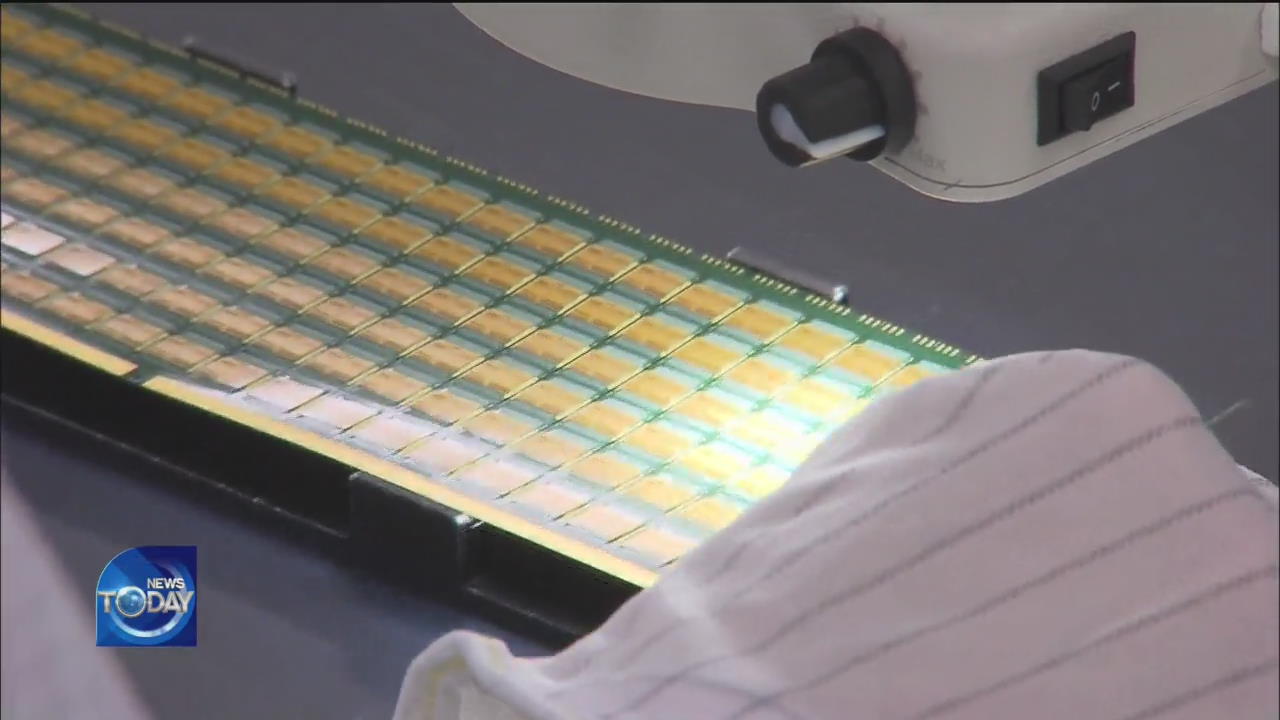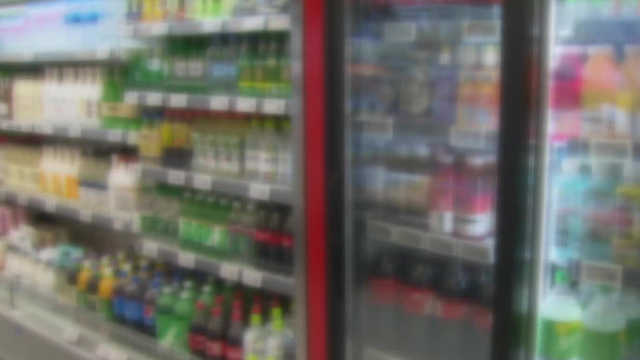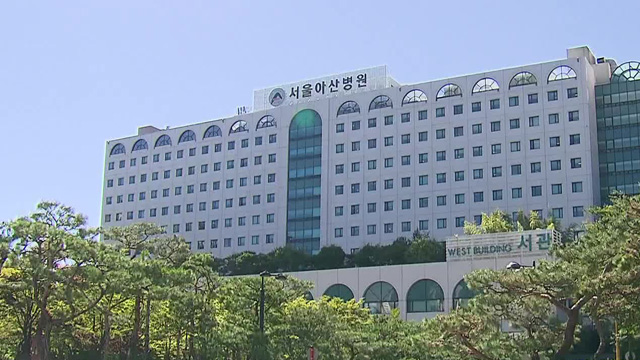KOREA RECORDS LOWEST GROWTH RATE SINCE 2008
입력 2020.04.24 (15:20)
수정 2020.04.24 (16:48)
읽어주기 기능은 크롬기반의
브라우저에서만 사용하실 수 있습니다.
[Anchor Lead]
The Korean economy contracted 1.4 percent in the first quarter of 2020 as a result of the coronavirus pandemic, recording the lowest growth rate since the 2008 global financial crisis. Private consumption, in particular, recorded a sharp decline. Experts say the economic impact of the pandemic on exports and production will become more palpable in the second quarter of the year.
[Pkg]
Semiconductors posted impressive numbers in the first quarter, driving the nation's overall exports. However, a renowned market survey company predicts global semiconductor shipments will dip by the end of 2020, marking the first time the sector notched declines in two straight years. The bleak outlook is based on the prolonged COVID-19 pandemic. The Bank of Korea expressed similar concerns.
[Soundbite] PARK YANG-SOO(BANK OF KOREA) : "Semiconductors posted only a slight decrease, but they dipped into negative territory in April. This means exports could negatively impact economic growth in the second quarter."
Automobile production is expected to plummet 30 percent as exports continue to hit more snags. In fact, the nation's outbound shipments contracted 27 percent on-year as of April 20. The most concerning figures come from exports of fully assembled cars: a drastic 53 percent dive. Due to the global economic recession, it's hard to even estimate the impact on the airline industry, which recorded a 98-percent decrease in international passengers, and the oil refinery sector, forecast to post the largest-ever quarterly deficit.
[Soundbite] HA JUN-KYUNG(PROF., HANYANG UNIVERSITY) : "Exports will suffer a severe blow, while businesses could slash their facility investment because of market uncertainty."
As the number of domestic COVID-19 cases continues to fall, many hope consumption will finally recover. However, the lingering uncertainty in the jobs market could hinder the recovery. Last month, the number of new jobs recorded the largest drop since the 2009 financial crisis, while the number of corporate bankruptcies surpassed one hundred, surging by 53 percent from last year due to the challenging business climate.
[Soundbite] KANG HYUN-JOO(KOREA CAPITAL MARKET INSTITUTE) : "Domestic businesses are struggling to stay afloat because of liquidity or low consumption. New measures are urgently needed to help them survive through the third quarter."
The nation's economic growth in Q2 will likely be determined largely by how well businesses endure this crisis.
The Korean economy contracted 1.4 percent in the first quarter of 2020 as a result of the coronavirus pandemic, recording the lowest growth rate since the 2008 global financial crisis. Private consumption, in particular, recorded a sharp decline. Experts say the economic impact of the pandemic on exports and production will become more palpable in the second quarter of the year.
[Pkg]
Semiconductors posted impressive numbers in the first quarter, driving the nation's overall exports. However, a renowned market survey company predicts global semiconductor shipments will dip by the end of 2020, marking the first time the sector notched declines in two straight years. The bleak outlook is based on the prolonged COVID-19 pandemic. The Bank of Korea expressed similar concerns.
[Soundbite] PARK YANG-SOO(BANK OF KOREA) : "Semiconductors posted only a slight decrease, but they dipped into negative territory in April. This means exports could negatively impact economic growth in the second quarter."
Automobile production is expected to plummet 30 percent as exports continue to hit more snags. In fact, the nation's outbound shipments contracted 27 percent on-year as of April 20. The most concerning figures come from exports of fully assembled cars: a drastic 53 percent dive. Due to the global economic recession, it's hard to even estimate the impact on the airline industry, which recorded a 98-percent decrease in international passengers, and the oil refinery sector, forecast to post the largest-ever quarterly deficit.
[Soundbite] HA JUN-KYUNG(PROF., HANYANG UNIVERSITY) : "Exports will suffer a severe blow, while businesses could slash their facility investment because of market uncertainty."
As the number of domestic COVID-19 cases continues to fall, many hope consumption will finally recover. However, the lingering uncertainty in the jobs market could hinder the recovery. Last month, the number of new jobs recorded the largest drop since the 2009 financial crisis, while the number of corporate bankruptcies surpassed one hundred, surging by 53 percent from last year due to the challenging business climate.
[Soundbite] KANG HYUN-JOO(KOREA CAPITAL MARKET INSTITUTE) : "Domestic businesses are struggling to stay afloat because of liquidity or low consumption. New measures are urgently needed to help them survive through the third quarter."
The nation's economic growth in Q2 will likely be determined largely by how well businesses endure this crisis.
■ 제보하기
▷ 카카오톡 : 'KBS제보' 검색, 채널 추가
▷ 전화 : 02-781-1234, 4444
▷ 이메일 : kbs1234@kbs.co.kr
▷ 유튜브, 네이버, 카카오에서도 KBS뉴스를 구독해주세요!
- KOREA RECORDS LOWEST GROWTH RATE SINCE 2008
-
- 입력 2020-04-24 15:20:30
- 수정2020-04-24 16:48:44

[Anchor Lead]
The Korean economy contracted 1.4 percent in the first quarter of 2020 as a result of the coronavirus pandemic, recording the lowest growth rate since the 2008 global financial crisis. Private consumption, in particular, recorded a sharp decline. Experts say the economic impact of the pandemic on exports and production will become more palpable in the second quarter of the year.
[Pkg]
Semiconductors posted impressive numbers in the first quarter, driving the nation's overall exports. However, a renowned market survey company predicts global semiconductor shipments will dip by the end of 2020, marking the first time the sector notched declines in two straight years. The bleak outlook is based on the prolonged COVID-19 pandemic. The Bank of Korea expressed similar concerns.
[Soundbite] PARK YANG-SOO(BANK OF KOREA) : "Semiconductors posted only a slight decrease, but they dipped into negative territory in April. This means exports could negatively impact economic growth in the second quarter."
Automobile production is expected to plummet 30 percent as exports continue to hit more snags. In fact, the nation's outbound shipments contracted 27 percent on-year as of April 20. The most concerning figures come from exports of fully assembled cars: a drastic 53 percent dive. Due to the global economic recession, it's hard to even estimate the impact on the airline industry, which recorded a 98-percent decrease in international passengers, and the oil refinery sector, forecast to post the largest-ever quarterly deficit.
[Soundbite] HA JUN-KYUNG(PROF., HANYANG UNIVERSITY) : "Exports will suffer a severe blow, while businesses could slash their facility investment because of market uncertainty."
As the number of domestic COVID-19 cases continues to fall, many hope consumption will finally recover. However, the lingering uncertainty in the jobs market could hinder the recovery. Last month, the number of new jobs recorded the largest drop since the 2009 financial crisis, while the number of corporate bankruptcies surpassed one hundred, surging by 53 percent from last year due to the challenging business climate.
[Soundbite] KANG HYUN-JOO(KOREA CAPITAL MARKET INSTITUTE) : "Domestic businesses are struggling to stay afloat because of liquidity or low consumption. New measures are urgently needed to help them survive through the third quarter."
The nation's economic growth in Q2 will likely be determined largely by how well businesses endure this crisis.
The Korean economy contracted 1.4 percent in the first quarter of 2020 as a result of the coronavirus pandemic, recording the lowest growth rate since the 2008 global financial crisis. Private consumption, in particular, recorded a sharp decline. Experts say the economic impact of the pandemic on exports and production will become more palpable in the second quarter of the year.
[Pkg]
Semiconductors posted impressive numbers in the first quarter, driving the nation's overall exports. However, a renowned market survey company predicts global semiconductor shipments will dip by the end of 2020, marking the first time the sector notched declines in two straight years. The bleak outlook is based on the prolonged COVID-19 pandemic. The Bank of Korea expressed similar concerns.
[Soundbite] PARK YANG-SOO(BANK OF KOREA) : "Semiconductors posted only a slight decrease, but they dipped into negative territory in April. This means exports could negatively impact economic growth in the second quarter."
Automobile production is expected to plummet 30 percent as exports continue to hit more snags. In fact, the nation's outbound shipments contracted 27 percent on-year as of April 20. The most concerning figures come from exports of fully assembled cars: a drastic 53 percent dive. Due to the global economic recession, it's hard to even estimate the impact on the airline industry, which recorded a 98-percent decrease in international passengers, and the oil refinery sector, forecast to post the largest-ever quarterly deficit.
[Soundbite] HA JUN-KYUNG(PROF., HANYANG UNIVERSITY) : "Exports will suffer a severe blow, while businesses could slash their facility investment because of market uncertainty."
As the number of domestic COVID-19 cases continues to fall, many hope consumption will finally recover. However, the lingering uncertainty in the jobs market could hinder the recovery. Last month, the number of new jobs recorded the largest drop since the 2009 financial crisis, while the number of corporate bankruptcies surpassed one hundred, surging by 53 percent from last year due to the challenging business climate.
[Soundbite] KANG HYUN-JOO(KOREA CAPITAL MARKET INSTITUTE) : "Domestic businesses are struggling to stay afloat because of liquidity or low consumption. New measures are urgently needed to help them survive through the third quarter."
The nation's economic growth in Q2 will likely be determined largely by how well businesses endure this crisis.
이 기사가 좋으셨다면
-
좋아요
0
-
응원해요
0
-
후속 원해요
0










![[HEADLINE]](https://news.kbs.co.kr/data/news/2020/04/24/4432288_10.jpg)






이 기사에 대한 의견을 남겨주세요.